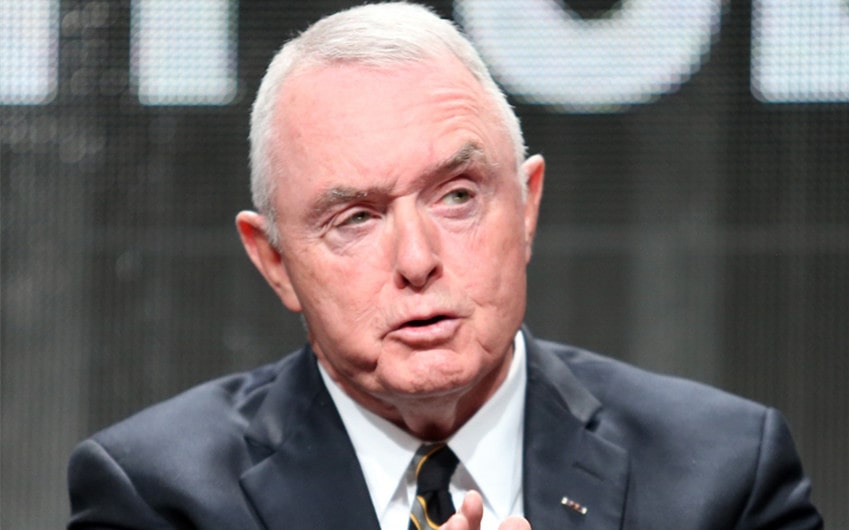When someone dedicates their life to public service—leading troops, shaping national policy, and offering steady insight during global crises—you can’t help but wonder what that kind of career adds up to. General Barry McCaffrey has done just that, earning respect across military, political, and media circles.
Whether you’ve seen him on cable news or read about his leadership in history books, it’s only natural to be curious about General Barry McCaffrey’s net worth and how decades of service have translated into financial stability. Let’s take a closer look at the man and the money behind the mission.
From Battlefield to Pentagon: Salary and Honors as a U.S. General
General Barry McCaffrey’s early professional foundation is one built on discipline, sacrifice, and decorated achievement. Commissioned in the 1960s after graduating from West Point, he went on to serve in Vietnam, earning three Purple Hearts, two Silver Stars, and two Distinguished Service Crosses—the second-highest military honor after the Medal of Honor. He climbed the ranks to become a four-star general, ultimately commanding U.S. Southern Command.
In terms of direct earnings, military officers—even at the highest levels—do not accumulate wealth in the traditional celebrity or business executive sense. However, a four-star general in the U.S. Army does receive a substantial salary. As of recent government pay scales, a full general with over 30 years of service can earn approximately $16,000 to $18,000 per month in active duty base pay, not including allowances for housing or other benefits. Upon retirement, military pensions offer continued financial support. A retired general like McCaffrey would likely receive a lifetime pension north of $150,000 per year, adjusted annually for inflation.
Additionally, the prestige associated with McCaffrey’s service doesn’t end with financial support—it opens doors to post-retirement speaking engagements, advisory roles, and teaching positions. These opportunities are often available to individuals who carry not only rank but public credibility, which McCaffrey has in abundance.
Leading the Office of National Drug Control Policy
In 1996, General McCaffrey was appointed by President Bill Clinton as the Director of the Office of National Drug Control Policy, a role commonly referred to as the “Drug Czar.” It was a civilian cabinet-level position tasked with coordinating national drug prevention, treatment, and enforcement strategies. This role came with a federal salary aligned with other high-ranking executive officials—reportedly in the range of $150,000 to $175,000 annually at the time.
While his salary was respectable, it’s the position’s visibility and strategic importance that may have had the greatest long-term impact on his financial journey. During his tenure, McCaffrey gained national media exposure and credibility as a policy leader. He coordinated with domestic and international agencies, giving him invaluable contacts that would later prove useful in the private sector. The experience and public trust gained from leading such a critical office became assets in and of themselves—translatable into consulting opportunities, speaking roles, and private-sector partnerships.
The Shift to Academia and Consulting
After completing his tenure in government, General McCaffrey transitioned into academia and consulting—a combination that has proven financially fruitful for many former public servants. He has taught at institutions like West Point and served as a guest lecturer across various universities, sharing leadership lessons drawn from his years in combat and public policy. Academic roles of this nature often come with honorariums or contracted salaries, especially when the speaker is a figure of McCaffrey’s stature.
Perhaps even more lucrative has been his work as a consultant. General McCaffrey became the president of BR McCaffrey Associates LLC, a consulting firm that offers strategic and national security advice to private corporations and government entities. Through this company, he has advised firms on defense policy, leadership strategy, and crisis management. Private consulting rates for high-level figures like McCaffrey can range anywhere from $5,000 to $20,000 per day, depending on the scope and length of the engagement.
This stream of income is often a critical component of post-government careers. For McCaffrey, it represents a fusion of expertise, leadership, and credibility—all of which command a premium in sectors that intersect with defense, policy, and national strategy.
Media Analyst and Public Intellectual
In recent years, General Barry McCaffrey has become a regular presence on television, particularly on networks like NBC and MSNBC. He frequently offers analysis on military conflicts, defense policies, and global security issues. His authoritative tone, no-nonsense delivery, and real-world experience make him a trusted commentator during times of crisis or global tension.
While television analysts aren’t always compensated like full-time anchors, high-profile contributors like McCaffrey often receive appearance fees, retainer agreements, or consulting contracts. For someone with his resume, media compensation could contribute tens of thousands annually to his income—especially if bundled with speaking engagements, conference keynotes, or expert panels.
Additionally, this media exposure has helped maintain his relevance in public discourse, opening further opportunities in publishing and high-level events. These non-salary earnings—what many refer to as “thought leader income”—can be substantial for those with deep credentials and a respected public image.
Estimating General Barry McCaffrey’s Net Worth in 2025
After considering his military pension, federal salary during public office, consulting work, media appearances, and academic roles, what is a realistic estimate of General Barry McCaffrey’s net worth in 2025?
Though he is not known for lavish living or public displays of wealth, conservative estimates place his net worth in the range of $2 million to $4 million. This range reflects the cumulative impact of decades of service, smart post-retirement transitions, and ongoing relevance in national discussions. His net worth is not defined by one big payday but by long-term financial planning, consistent income, and the value of experience in high-demand areas like defense, leadership, and policy.
It’s also worth noting that McCaffrey has maintained a reputation for integrity and non-partisan insight, which adds trust—and therefore value—to every role he takes on. In a world where credibility is currency, his career has positioned him well for financial stability and continued influence.
General Barry McCaffrey’s net worth represents more than the sum of his earnings; it reflects a lifetime spent at the intersection of duty and discipline. His story is a powerful example of how public service, when matched with strategic thinking and adaptability, can lead not only to honor but also to meaningful financial success. For those who admire leadership built on substance rather than flash, McCaffrey stands as both a role model and a financial case study in how true legacy is built.
Featured Image Source: imdb.com







